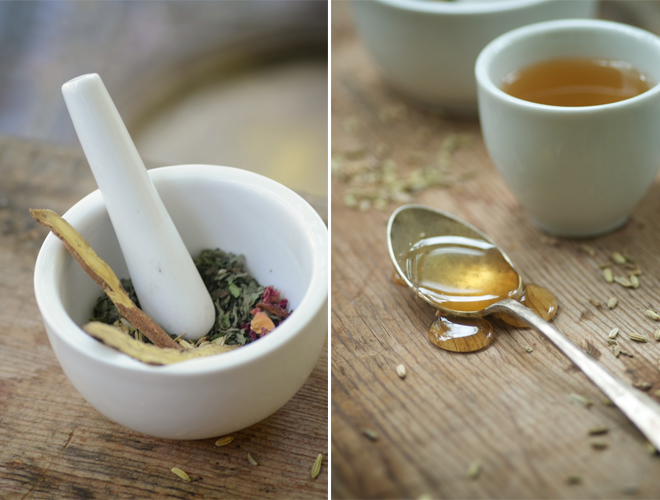The Best Tea for Sleep
by Admin
Posted on 02-02-2023 08:38 AM
Americans drink an average of 3. 8 billion gallons of tea a year. Herbal teas have long been used for relaxation and sleep, and there is scientific evidence to support herbal teas as a holistic way to reduce fatigue trusted source national library of medicine, biotech information the national center for biotechnology information advances science and health by providing access to biomedical and genomic information. See full reference and improve sleep quality. Herbal teas can be a great option both day and night, especially if you’re trying to kick a caffeine habit before bed. Herbal teas can be made from any edible herb or plant, but there are six specific herbs that have been shown to improve sleep and promote relaxation.

Bedtime tea can be a good a great addition to a nightly bedtime routine. It can be especially beneficial for people who have difficulty falling asleep or winding down before bed. However, keep in mind that bedtime teas may not be effective for severe cases of insomnia ( ). Additionally, bedtime tea should be used alongside other healthy habits to support better sleep, such as setting a regular nightly schedule and limiting caffeine intake before bed. People who are pregnant or breastfeeding should check with a doctor before adding bedtime tea to their nightly routine, as some varieties may contain ingredients that aren’t recommended.
Note: while these teas have been shown to have a positive effect on sleep and relaxation, the research is continually evolving and we’ll report more here as we continue to explore tea’s full effect on your sleep.
Does Warm Milk Help You Sleep?
Milk contains l-tryptophan and melatonin, two compounds connected to inducing sleep. Tryptophan is an amino acid found in protein-rich foods and helps produce serotonin, the neurotransmitter responsible for regulating your mood and sleep-wake cycles.
Melatonin is the sleep hormone and helps regulate your circadian rhythm. Drinking warm milk before sleeping may also have a placebo effect in that the warm beverage is comforting. This is particularly true if your parents fed you warm milk before bed when you were a child. This soothing memory subconsciously relaxes your brain at nighttime and helps you get to sleep. Feel free to try a twist on the idea and drink a protein shake before bed.
When choosing an herbal tea that can promote relaxation, it’s important to consider a few things, like flavor, aroma, and caffeine content. For starters, you’ll want to choose a tea you actually enjoy the taste of—plus, it shouldn’t contain caffeine if you want to (successfully) wind down in the evening. “in general, selecting the appropriate tea to include as part of a bedtime tea ritual is more about personal preference and taste, and certainly avoiding any tea that contains caffeine, as caffeine is a known sleep-disrupter,” dr. Troxel says. Some of her suggestions include: chamomile, lavender, or even warm milk or golden milk tea , which she says “can provide a sense of calm and comfort particularly as the aroma may evoke pleasant memories, such as of childhood or connection to one's culture.
The natural tryptophan levels in milk help you to fall asleep faster. Try a warm cup of milk before bed to prepare for sleep to help reduce the risk of insomnia, jet lag, and other sleep disorders.
The Best Foods To Help You Sleep
Although there's research on some types of herbs and their impact on sleep, there's little definitive proof that drinking tea can help you sleep. "most research has focused on herbs in extract or supplement form and not as tea," says cartlidge. "therefore, more high-quality research is needed to better understand how herbal teas may improve sleep. "still, many people find drinking tea relaxing, and research indicates there may be some health benefits. If you are going to use tea to try to sleep better at night, do it as part of a holistic sleep hygiene routine that includes going to bed at the same time, avoiding electronics before bed, avoiding large meals two hours before bed, and minimizing sugary foods, caffeine, and alcohol intake.
Diet can have a significant impact on the quality of our sleep. Consuming foods high in sugar and processed carbohydrates can cause spikes in blood sugar levels, leading to restless sleep. Eating a large meal before bed can also disrupt sleep due to the body’s need to digest the food. In contrast, consuming foods rich in magnesium and calcium can have a calming effect on the nervous system and promote better sleep. Additionally, ensuring that all nutritional needs are met throughout the day can improve overall health and lead to more restful sleep at night.
If you crave something with a little sweetness after dinner, then this is the perfect guilt free bedtime drink that won't interrupt your sleep. We’ve blended rooibos, chai spices and cocoa shells with a touch of vanilla for the ultimate premium luxury teas. All the relaxing and calming attributes of rooibos are complimented by spices such as ginger and cardamom which have been traditionally used to help with a variety of issues from digestion to stress. The addition of cocoa shells and vanilla bring a moreish and comforting sweetness without any of the negatives of sugar. As you probably know, chocolate does contain small amounts of caffeine.
Studies have shown that green tea may be effective in reducing stress which in turn might help you to achieve more restful sleep. Green tea is also bursting with naturally healthy tea ingredients so drinking a daily cup of blooming good green tea is a great way to stay well. But green tea does also contain a small amount of caffeine – not as much as black tea, mind you. Go ahead and indulge in your tealicious daily greens in a cup but perhaps choose another herbal sleep tea as your fave bedtime tea if you are a little reactive to caffeine.